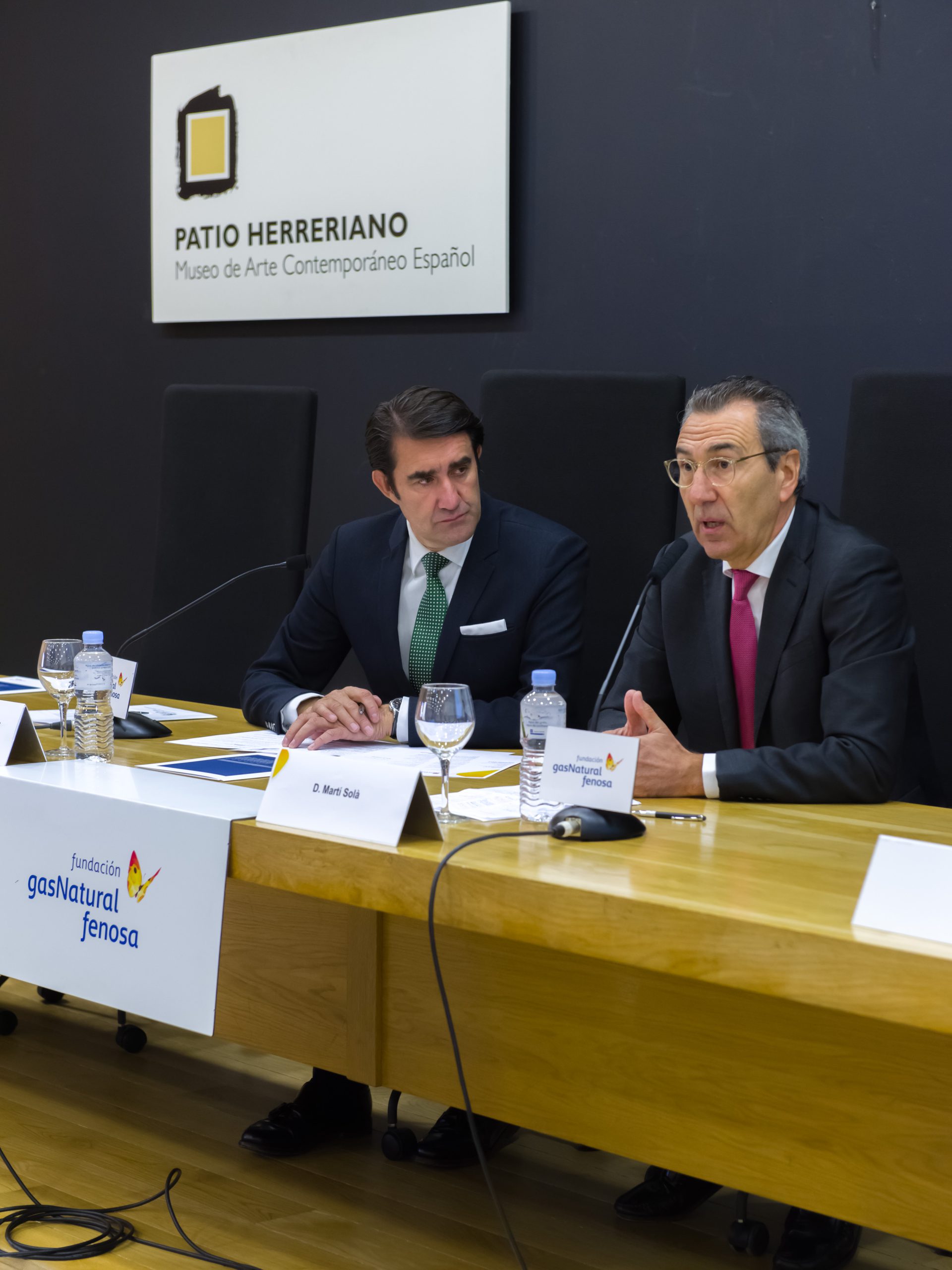Gas Natural Fenosa Foundation analyses impact of taxes on energy prices in Valladolid
Energy taxation increases domestic bills and drags down business competitiveness. The costs associated with energy and social policies and taxes account for about half of the total electricity bill. EarlierLeer más

- Energy taxation increases domestic bills and drags down business competitiveness.
- The costs associated with energy and social policies and taxes account for about half of the total electricity bill.
Earlier today, the Minister for Public Works and Environmental Affairs of the Regional Government of Castile-Leon, Juan Carlos Suárez-Quiñones, and the General Manager of the Gas Natural Fenosa Foundation, Martí Solà, officially opened the seminar entitled ‘Taxes on Energy’ in Valladolid. At this forum, various experts discussed the most important aspects of the taxes placed on energy and the impacts of energy taxation on domestic bills and business competitiveness.
The seminar, which was officially closed by the Director General for Energy and Mining of the Economic Affairs and Treasury Ministry of the Regional Government of Castile-Leon, Ricardo González Mantero, and the General Manager of the Gas Natural Fenosa Foundation, Martí Solà, was attended by over 100 professionals, lawyers, economists, company taxation managers and energy company managers.
The Senior Manager for Strategy at PWC, Gerardo Fernández Martín, said that the costs associated with energy and social policies (“parafiscal charges”) and taxes account for about half of electricity bills. This is affecting the price of electricity in Spain, which is one of the highest in Europe, and leading to less disposable income for households and dragging down business competitiveness.
The representative from the Tax Law Department at Uría Menéndez, Miguel Bastida Peydro, explained that most of the taxes levied on energy consumption or production, as well as those levied on the environmental impact caused, are eventually passed on to the consumer through the energy price.
The lawyer from Clifford Chance and Professor at Universidad de Comillas, Juan José Lavilla Rubira, analysed the destination for revenue from fiscal and parafiscal demands in the electricity sector. This expert believes that the parafiscal demands imposed on the electricity sector are often used for purposes other than covering the cost of the various activities involved in the supply of electricity. Many of the taxes imposed on the electricity sector are used simply to increase tax revenue.
The CFO of Europac, Jorge Bonnin, described how energy taxation is affecting the economic competitiveness of companies and explained that this impact is greater at those companies that consume the most power, such as the paper sector.
The lawyer, Pedro Corvinos, highlighted the origin and causes that have led to the tariff deficit and the current state of debt in the electricity system, as well as the controversial issue of financing all the costs in the electricity system. He recommended that some of these costs now assumed by the system and leading to a tariff surcharge should be financed by the General State Budget.
The Local and Environmental Taxation Partner of EY Abogados, Juan Carpizo Bergareche, presented the differences between Spanish energy taxation and that of other countries in the European Union. Unlike other European countries, Spain has various taxes at three tiers of government (local, regional and State) that tax the energy sector differently to other sectors of the Spanish economy.
Share